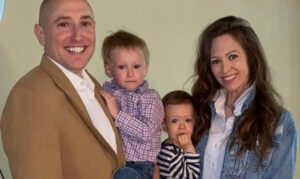Can I ask that you indulge me in a few more meditations on the meaning of Easter?
In particular, I’d like to address something that has stood out to me lately when thinking about the birth, death, and resurrection of Jesus. It is this: these key moments in Jesus’ life were attended mainly by women and it was primarily their words that we heard.
This, at a time when women were truly considered second-class citizens, both in ancient Jewish culture and Roman society. Their witness counted for almost nothing and their status in society was relegated almost exclusively to the home.
And yet, what do the early accounts — the Gospels— of this new religion do? They put women right at the key moments of the story and rely heavily both on their agency and their witness to move along the story of salvation.
In fact, in the beginning of the Gospels of Matthew and Luke, women have almost all of the speaking roles, followed by angels and then, in a distant third place, by a few men, and even then not ever in the presence of Jesus.
Mary responds to the angel, who tells of her of God’s plan and asks for her assent. “Be it done unto me according to thy word,” she says.
After this moment, when Mary accepts the great, mysterious gift of having the Holy Spirit over-shadow her to unite God the Father with humanity in her womb, she heads off to visit her cousin, Elizabeth, who then also speaks, welcoming Mary: “Blessed are you among women, and blessed is the fruit of your womb. And why has this happened to me, that the mother of my Lord comes to me? “
Mary then goes on to sing the great song of salvation, the Magnificat, which contains profundity almost inconceivable for a girl in her teens, even if only a creation of the Gospel author.
Elizabeth’s husband is silent during this entire exchange and was, according to the story, mute at this point due to his earlier doubting of the angel’s message, which contrasts sharply with Mary’s trusting of it.
Also quiet throughout the entirety of the gospels is Mary’s husband, Joseph. The poor guy doesn’t get one word in and is spoken to almost exclusively by angels in his sleep.
So, no men are recorded speaking to Mary from the time of her virginal conception of Jesus until his birth. This silence is broken by Simeon, who gives her the news that her son “will be a sign of contradiction, and that [Mary] too will have [her] heart pierced by a sword,” a rather ominous prediction of both Jesus’ destiny and the suffering his mother would undergo while witnessing it.
Skip forward to the passion of Christ, where he is arrested, tortured, and then executed on a wooden cross.
Here, too, the men do themselves no favors. Peter, his lead disciple, denies knowing Jesus thrice during his trial. The male leaders of the Sanhedrin hurl insults and angry threats at Jesus. Pontius Pilate, the Roman governor of Palestine, questions Jesus and the crowd, and then to avoid civil unrest, condemns a man he thinks innocent to death.
But the women, they are different. Jesus’ mother Mary is with him throughout the ordeal, and is one of only three disciples who accompanies him to the cross itself. She is joined by Mary Magdalene and several other “women of Jerusalem” who seek to comfort Jesus while he carries the cross to the hill of execution, Calvary.
The women are with him, and speaking to him, and he speaks to them and to his mother with one of his final breaths, entrusting her to John, his “beloved disciple.”
And then, on Easter morning, three days after his death, who first comes to the grave and announces that Jesus has risen? Mary Magdalene, again, and Mary the mother of Jesus.
Though Jesus may have been a man, and revealed God to be a Father (though not a “man” since he is pure spirit), and chose men to be the 12 apostles, he and the Gospel writers nevertheless gave women an exalted role at the key moments of his life, turning upside down the norms of the time and showing how the feminine genius — how the unique qualities of women — were so highly valued by God. Their nurturing, their care for the oppressed, their unswerving dedication to their loved ones are the pillars of the Gospel ethic and story.
All of this goes to show how in the kingdom of God, things are different than in the “real world.” This is a message that was revolutionary back then, and still shocks today.
Though we have seen the liberation of women from societal and legal restrictions in the workplace and politics, have we made sure to truly value their unique qualities as did the Gospels 2000 years ago? Do we still accord due respect and honor to women as mothers, caregivers, nurturers, and participants by their very nature in the divine plan of God?
In some quarters, I think that may not be the case. But, just remember that in this fussy old religion of Christianity, considered so backward and retrograde by the world, you have its earliest adherents writing about the heroic virtues of women in the most important story ever told, while the men are silent at best, and complicit at worst.
Trey Hoffman
Peachtree City, Ga.










Leave a Comment
You must be logged in to post a comment.